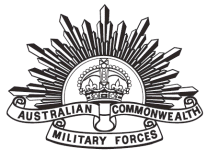
| Regimental number | 1402 |
| Place of birth | St Arnaud Victoria |
| Religion | Methodist |
| Occupation | Farmer |
| Address | 145 Scotts Parade, Ballarat East, Victoria |
| Marital status | Single |
| Age at embarkation | 23 |
| Next of kin | Mr S Polkinghorne, 145 Scotts Parade, Ballarat East, Victoria |
| Enlistment date | |
| Rank on enlistment | Private |
| Unit name | 8th Battalion, 2nd Reinforcement |
| AWM Embarkation Roll number | 23/25/2 |
| Embarkation details | Unit embarked from Melbourne, Victoria, on board HMAT A46 Clan Macgillivray on |
| Regimental number from Nominal Roll | 1283 |
| Rank from Nominal Roll | Private |
| Unit from Nominal Roll | 8th Battalion |
| Fate | Killed in Action |
| Date of death | |
| Age at death from cemetery records | 23 |
| Place of burial | Shell Green Cemetery (Artillery Road Plot 3), Gallipoli, Turkey |
| Panel number, Roll of Honour, Australian War Memorial | 54 |
| Miscellaneous information from cemetery records | Parents: Samuel and Eliza POLKINGHORNE, 133 Victoria Street, Ballarat East, Victoria. Native of St Arnaud, Victoria, Australia |
| Family/military connections | Brother: 1001 Pte Reginald POLKINGHORNE, Australian Army Medical Corps, returned to Australia, 29 October 1918. |
| Other details |
War service: Egypt, Gallipoli Medals: 1914-15 Star, British War Medal, Victory Medal His brother, Reginald Polkinghorne, wrote as follows to their mother: 'Off Gibraltar, May 7 1915. Dear Mother, This is a very hard letter to write although I know you will by now have the list of the killed and wounded. Clifford died a glorious death, a hero in the very front line of battle. Thousands of others fell that same day (April 25th). Although it was full of glory for us who were fighting, it meant a lot of suffering to all of you at home. It was a terrible fight, but not one of us shirked it at all. Indeed we were like old soldiers, the way we took the bloodshed around us. Cliff and I were together all the time after he arrived in Egypt and on the boat going to the Dardanelles. After we landed we were together for about 10 minutes and then we got separated. He was picked to go to the right and I to the left of our company. We advanced and came under heavy fire at once. That was about 9 o'clock in the morning of the first day. After that I never had time to look or think until after dark, when we tried to re-form our company. But only 50 returned, the other 200 being either killed, wounded or missing. Before morning, however, 26 more turned up, making only 76 out of our company of over 250. It was then that the boys told me that Cliff was gone. The fire of the Turks was so terrific that we could not get up to get Cliff until Tuesday morning. The boys did all they could for him. We buried him by himself in a grave on the hillside, just where the fiercest of the fighting had been. Captain Coulter was very good and gave him a decent burial. The captain read the service, and all the boys who could be spared from the trenches came to pay their last respects to an honoured comrade. It was terribly sudden, but still I am sure that Cliff was prepared for it. Capt Coulter asked me about you, and asked me to write as soon as possible. He had a brother killed beside him in South Africa. Cliff's death was just the kind of death that a soldier wishes for. It is terrible to see those badly wounded lying around you when you cannot do anything for them. That Sunday, April 25th, was the hottest battle ever fought. The "heads" thought we would retreat, in fact a retreat was ordered, but our general said he knew we would never retreat while there was a man alive, so we held on and won. The next three days and nights were just the same, only we had dug trenches, and so held the position. We had no sleep and only a little bully and biscuit to eat for the whole time. The Turks got at the back of us dressed in our uniforms, which they had stolen from the Australians who were killed. One of them got me in the back on Wednesday morning. It knocked me over. The bullet went in just half an inch from the spine, just missed my lung and stopped up under the shoulder bone. Colonel Gartside was in the trench. He had me sent straight away to the AMC. They took the bullet out and I was sent on to the hospital ship and am now on my way to England. I know you will be grieving about Cliff, but do not worry. He died with others and all their memories will be honoured for centuries to come. We were against great odds that day. The Turks were 10 to 1 against us. They had artillery but we held our own and I think we beat them. I am recovering now, but I have nothing left, not even my uniform, but I will get some in England. With love, Reg.' |
| Sources | 'Herald Sun' 25 April 2001, p. 10 |